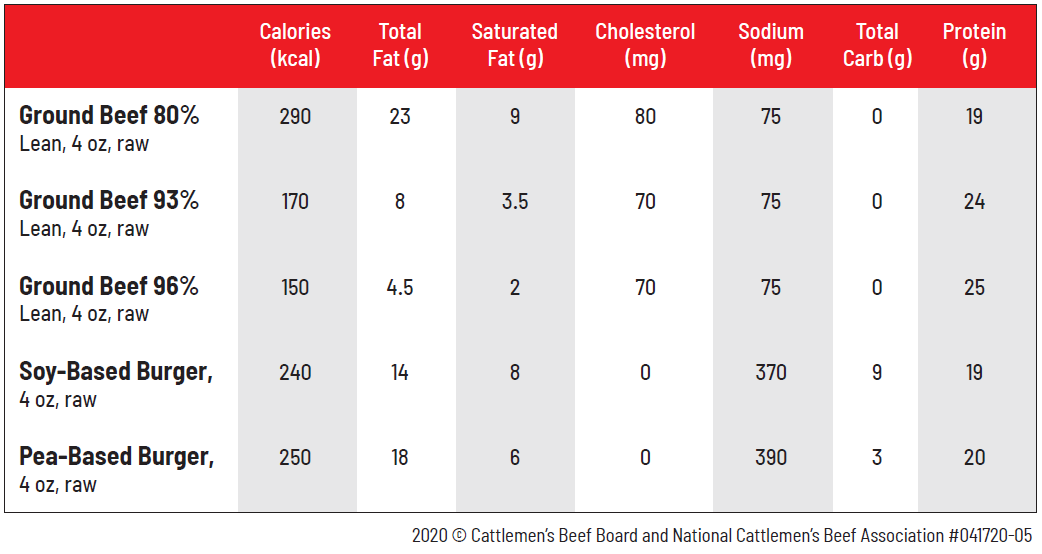TCFA News
Panel of experts ask Texas lawmakers to keep misleading food labels out of the meat case.
Brandi Richards, fourth-generation rancher and owner/operator of Diamond Cattle Feeders in Hereford, Texas, testified before the Texas House Public Health Committee meeting Wednesday encouraging support of H.B. 316, a bill to ensure food labels of plant-based and cell-cultured tissue products do not wrongfully identify as meat products.
"Like most consumers, I strive to purchase nutritious food for my family. I review labels to determine which foods best support our nutritional needs, and I expect those labels to be truthful," Richards said. "Consumers deserve to know exactly what they are purchasing and consuming. Food labels should be clear and avoid any attempt to mislead, confuse or misrepresent what is included in a food product." H.B. 316, introduced by Rep. Brad Buckley (R-Salado), would consider food products misbranded if " any part of its labeling is false or misleading” and “the food includes a label stating "meat," "beef," "chicken," "pork," or any common variation of those terms, if the food does not contain the products listed on the label." The bill also defines meat as it pertains to food as, "any edible portion of a livestock carcass that does not contain lab-grown, cell-cultured, insect, or plant-based food products." In a recent survey of 1,200 Texas consumers, one in five of the respondents who had purchased a plant-based product indicated they felt misled by the labels noting that they thought the product contained real meat. The same survey also indicated that 71% of Texas consumers routinely examine food labels before making grocery store purchases. Additionally, 74% prefer to ban cell-cultured tissue and plant-based products from using words like meat, beef, chicken, eggs, or images of livestock on their packages if the product does not contain actual meat or eggs. Likewise, two-thirds of respondents in a recent national consumer study believed imitation products labeled as meat contained real beef or some form of animal byproduct. "The sole focus of this bill is to assure consumers, like me, that the labels on the food we purchase are truthful," Richards said. "This bill provides certainty that a package of beef is beef." Joining Richards in support of the bill were Shalene McNeill, Ph.D., nutrition scientist, registered dietician and past president of the Texas Academy of Nutrition and Dietetics, and Rhonda Miller, Ph.D., meat and consumer scientist and past president of the American Meat Science Association (AMSA). “Artificial product labels are misleading, whether it be ultra-processed plant-based or cell-cultured tissue,” McNeill said. “And this undermines the consumer’s ability to make reliable decisions about what they are eating. “The food label is one of the most sacred promises we have to maintain consumer’s confidence about their food choices. I can’t think of a food more important than meat to label truthfully and accurately,” she said. “Whether you are a meat eater or a vehement vegetarian, you want to know for sure if you are buying real meat or not.” According to McNeill, health professionals are increasingly skeptical and concerned that ultra-processed alternatives labeled meat may be detrimental to human health. “These products are not healthier,” she said. “They have added sodium and are higher in fat and calories than real lean beef. Foods are unique in their food offering, and no other food source offers the same nutrient mix. A three oz. serving of beef, for example, provides 10 essential nutrients, including high quality-protein, zinc, iron and B vitamins.”
Miller said that consistent labeling across federal and state agencies is crucial for consumer confidence in the food system.
Current USDA Food Safety and Inspection Service definitions for labeling of products that contain non-meat, protein-based materials provide standards of identity so that real beef products that do not contain non-meat ingredients have recognized names, such as ground beef or hamburger. But when non-meat ingredients such as plant-based materials are added, the final product cannot be called ground beef. Rather it must be called Ground Beef and Isolated Soy Protein, for example. "These regulations have been in place for an extended period, to protect the consumer, and have withstood the test of time," Miller said. "H.B. 316 is needed to protect and help educate consumers, increase their confidence and unify labeling declarations for cell-culture tissue and plant-based food products that are computing in the traditional meat space."
2 Comments
7/21/2021 03:00:20 am
Really a very informative blog I have read since long Thanks for taking the time to write the blog.. and really this is useful for everyone and a thumps up by my side to subscribing to your blogs to get the same forever and enjoy the reading.
Reply
Leave a Reply. |
Categories
All
Archives
June 2024
|
About TCFA |
Get Involved |
|


